The sheer amount of maintenance drums, such as acoustic drums, hand drums, frame drums, and more, require can come as a shock to beginner drummers. Drums might look simple, but they have more parts than most instruments. There’s the frame, the drumhead, and drum accessories like beaters and stands. You need to meticulously care for all these parts if you want to keep your drum in optimal playing condition.
If you’re wondering how to keep your drums in good shape but aren’t sure where to start, read these maintenance tips that every drummer should know.
Cover It Up
Even the most dedicated drummers need a break sometimes. And when you’re not using your drums, you need to store them properly. Leaving them out in the open or precariously hanging off the couch isn’t the best of ideas.
If you don’t cover drums when you’re not using them, they can become dusty, greasy, grimy, and dirty. They can even sustain cosmetic damage, such as cuts, dents, or scrapes. Luckily, drum cases and covers exist. Cases and covers are some of the best accessories for your drum because they guard them against many forms of damage. If you can’t get a proper case for your drum, you can use a bedsheet or drop cloth to cover your drums when they’re not in use. These cloths should stave off most forms of grime.
Keep It Clean
The next tip on how to keep your drums in good shape is to keep them clean. The kind of cleaning product you should use on your drum depends on your drum’s materials. For example, you should never wash rawhide drums with harsh cleaning chemicals. Instead, use a damp microfiber cloth and gently wipe the drumhead and frame using circular strokes.
If you have a metal or plastic drum, you can clean it with a non-abrasive cleaner, such as Windex, or a 50-50 mixture of vinegar and water for the frame. Use a damp cloth for the drumhead. If your drum kit includes cymbals, use polish that companies specifically designed for cymbals. Most companies sell their own formulas, so check their websites to find the best deals.
Replace the Heads
Drumheads won’t last forever. For this reason, you should regularly inspect your drumheads and also keep an eye—or ear—out for any unusual changes to your drum’s tone. If the drumhead becomes dented, torn, or otherwise damaged, you need to replace it. You should also replace your drumhead if you can’t correctly tune it.



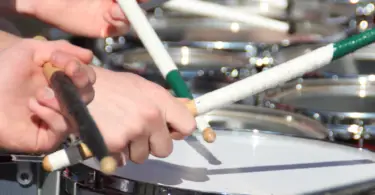
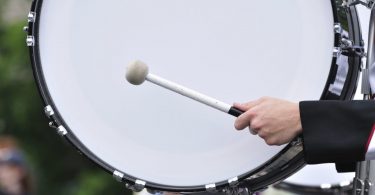
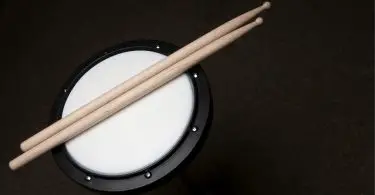
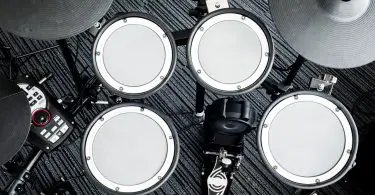
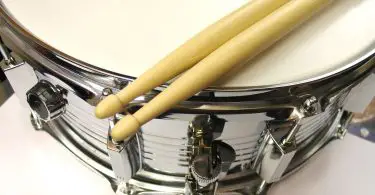
Start the discussion at talk.hearthemusicplay.com